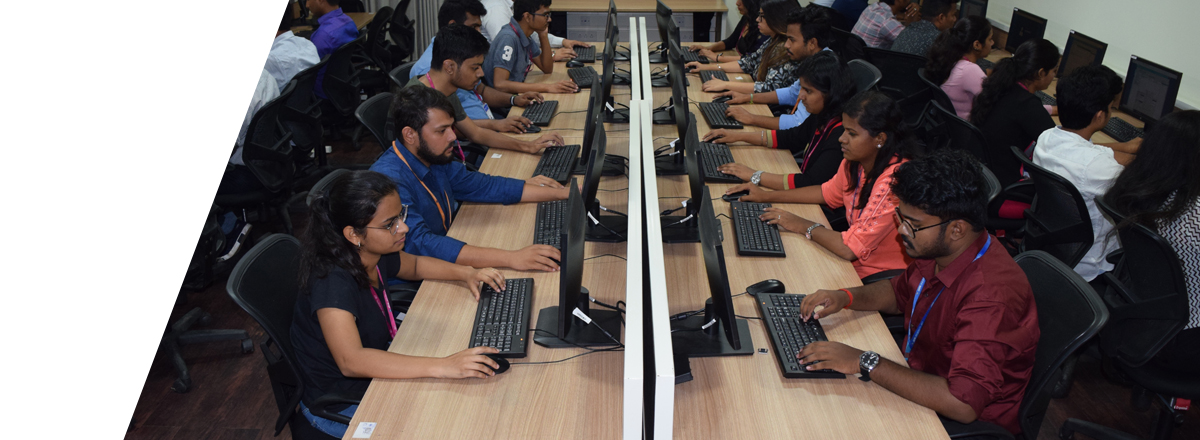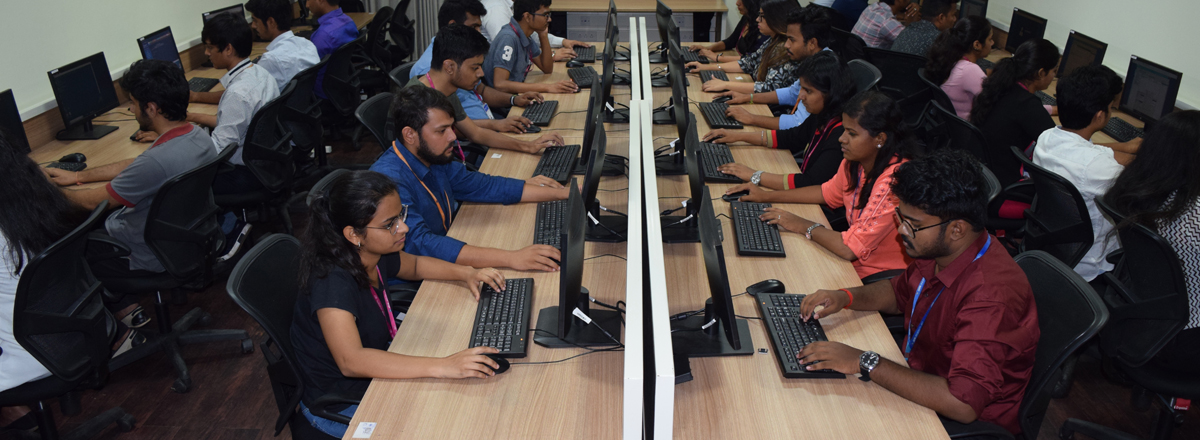Computer Science and Engineering (Blockchain Technology)


Computer Science and Engineering (Blockchain Technology)


The B.Tech in Computer Science & Engineering programme with a specialisation in Blockchain Technology at JAIN (Deemed-to-be University) one of the top Computer Science Engineering colleges in Bangalore offers a deep dive into computer science fundamentals alongside specialised knowledge in blockchain technology. Graduates are equipped to design, develop, and implement blockchain-based solutions for diverse industries. Through coursework covering cryptography, distributed systems, and smart contracts, students address the complexities of decentralised ledger technology, ensuring secure transactions. Program objectives focus on continuous learning, interdisciplinary research, entrepreneurial skills, and professional ethics.
B.Tech in Computer Science & Engineering programme with a specialisation in Blockchain Technology offers a unique pathway for students to immerse themselves in one of the most transformative technologies of our time. This specialised programme equips individuals with the skills and knowledge necessary to navigate the intricacies of blockchain development, including smart contracts, decentralised applications, and distributed ledger systems. As blockchain continues to disrupt traditional industries and create new opportunities, graduates with expertise in this field are in high demand across sectors such as finance, healthcare, supply chain management, and beyond. By combining foundational computer science principles with specialised training in blockchain, students gain a competitive edge in the job market and are poised to make meaningful contributions to the ongoing evolution of technology and business. Additionally, this specialisation fosters critical thinking, problem-solving, and innovation, preparing students to address the complex challenges and opportunities presented by the decentralised digital economy of the future.
On completion of the CSE in Blockchain Technology, students will possess the following programme-specific outcomes:
PSO 1: Skills to develop and deploy blockchain applications, utilizing smart contracts and distributed ledger technology proficiently.
PSO 2: Proficiency in analysing blockchain systems to identify vulnerabilities and propose enhancements for improved performance and security.
Some highlights of the Computer Science Engineering (Blockchain Technology) programme include:
Students also gain a strong grasp of the core principles of blockchain technology. This involves gaining knowledge in distributed systems, cryptography, consensus mechanisms, smart contracts, and decentralised applications (dApps). They acquire hands-on experience through participation in blockchain projects. Participate in blockchain conferences, meetups, and workshops to network with industry experts.
A student who has passed 10+2 examination (level 4.0) with Physics and Mathematics as mandatory courses, along with one of the following: Chemistry / Computer Science / Electronics / Information Technology / Biology / Informatics Practices / Biotechnology / Technical Vocational subject / Agriculture / Engineering Graphics / Business Studies / Entrepreneurship, shall be eligible for admission to B.Tech. programmes. Obtained at least 45% marks (40% marks in case of candidates belonging to reserved category) in the above subjects taken together.
OR
Passed D.Voc. Stream in the same or allied sector.
(The University will offer bridge courses in Physics and Mathematics, along with Chemistry / Computer Science / Electronics / Information Technology / Biology / Informatics Practices / Biotechnology / Technical Vocational subject / Agriculture / Engineering Graphics / Business Studies / Entrepreneurship, for the students coming from diverse backgrounds to prepare level playing field and desired learning outcomes of the programme).
RESERVATION CATEGORY: The University follows the percentage of Reservation for SC/ST & OBC Category as prescribed by the Central Government.
Passed a minimum three-year / two-year (Lateral Entry) Diploma examination (Level 4.5) with at least 45% marks (40% marks in case of candidates belonging to reserved category) in any branch of Engineering and Technology.
OR
Passed B.Sc. Degree from a recognized University as defined by UGC, with at least 45% marks (40% marks in case of candidates belonging to reserved category) and passed 10+2 examination with Mathematics as a subject.
OR
Passed B.Voc/3-year D.Voc. Stream in the same or allied sector.
(The University will offer suitable bridge courses such as Mathematics, Physics, Engineering drawing, etc., for the students coming from diverse backgrounds to achieve desired learning outcomes of the programme)
Bachelor of Technology (Lateral Entry to Third Year): UG Diploma in Engg (Level 5.0)
Bachelor of Technology (Lateral Entry to Final Year): B.Voc. in relevant discipline (Level 5.5)
Enhance your B.Tech experience with the option to pursue a Minor Degree from IIITH and gain unique opportunities for academic and professional growth!
Key Highlights of the UG Minor Degree Program from IIITH:
Certificate Issuance:
Minor Degree Recognition:
Research Internships:
Note:
Department Specific Electives |
|||||||||||||
| DSE Tracks | Elective-I | Elective-II | Elective-III | Elective – IV | Elective – V | Elective – VI | |||||||
| 5th Semester | 6th Semester | 6th Semester | 7th semester | 7th Semester | 8th Semester | ||||||||
| Track-I | Cloud Computing Fundamentals | Cloud Computing Fundamentals | Cloud Security | Blockchain Deployment on Cloud | Blockchain-Enabled Cloud Services | Blockchain in Edge Computing | Emerging Trends in Blockchain-based Cloud Marketplaces | ||||||
| Track-II | Artificial Intelligence | Artificial Intelligence | Machine Learning | Deep Learning | Natural Language Processing | Large Language Models | AI: Ethics and Legal Considerations | ||||||
| Track-III | Cyber security Landscape | Ethical Hacking | Network Defence | Threat Intelligence and Analysis | Cybersecurity using Blockchain | Emerging Trends In Cyber security | Cyber Crime and Law | ||||||
Open Elective Baskets |
|||
| S. No. | Finance and Accounting | Entrepreneurship and new venture creation | Marketing and Management |
| 1 | Finance for non-finance professionals | Entrepreneurship Theory and Practice | Marketing Management |
| 2 | Wealth Management | Launching and Managing an enterprise | Consumer Behaviour |
| 3 | Indian Financial System | Business Plan and Project Implementation | Brand Management |
| 4 | Financial Reporting | Sustainable Entrepreneurship | Product Management |
These are the careers that a Computer Science and Engineering (Blockchain Technology) graduate can follow on successful completion of the programme:
After completing a B.Tech in Computer Science & Engineering with a specialisation in Blockchain Technology, there are several further study options available to enhance your knowledge and skills in this field:
Students can choose to specialize in areas such as Fintech, Cryptocurrency, Artificial Intelligence or Banking. A Master’s degree will deepen your understanding of these subjects and open up higher-level job opportunities.
If you’re passionate about research and want to contribute to cutting-edge developments in the field, a PhD could be the path for you. This is necessary if you’re considering a career in academia or want to lead research teams in industry.
Students are provided with a structured learning path integrated with contributions from the following organizations. This approach facilitates a holistic comprehension of diverse facets within the field, empowering students to cultivate specialized skills and knowledge as they progress through their academic journey.